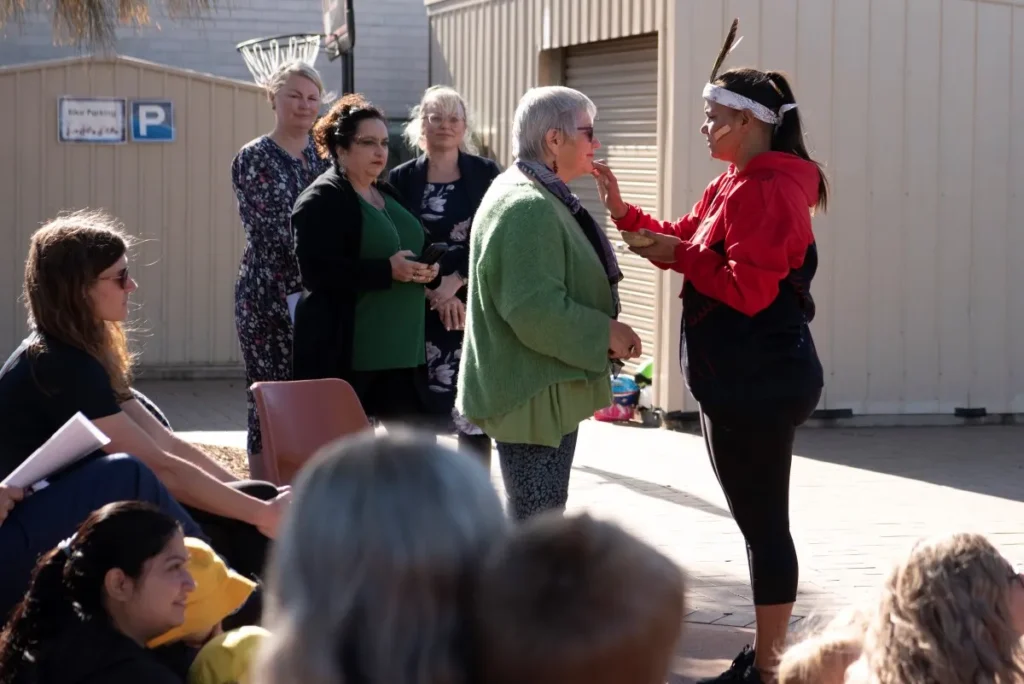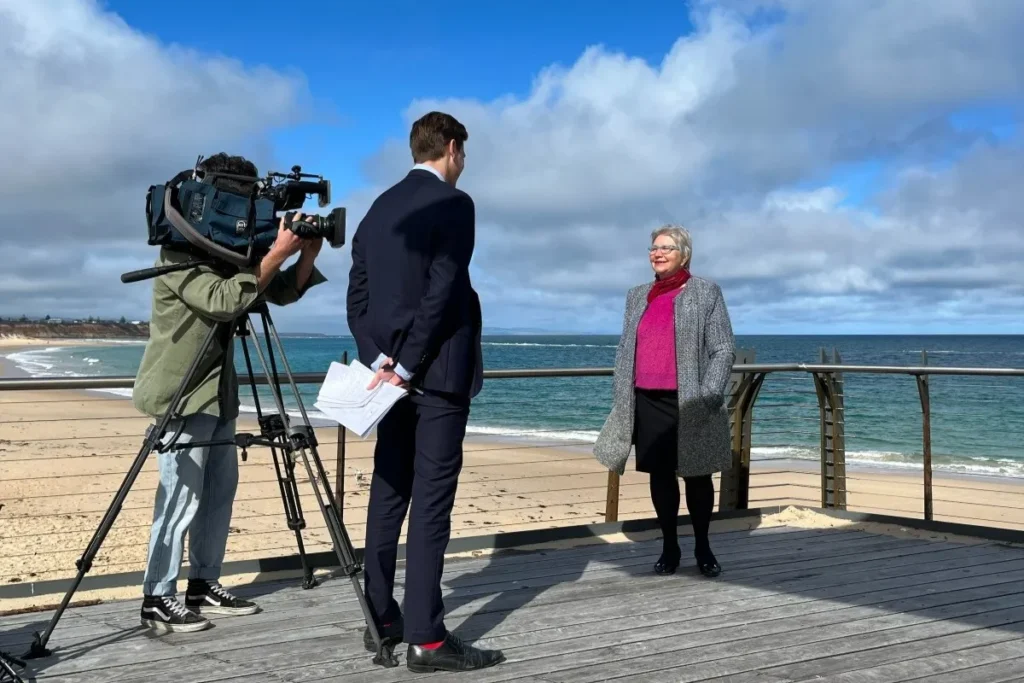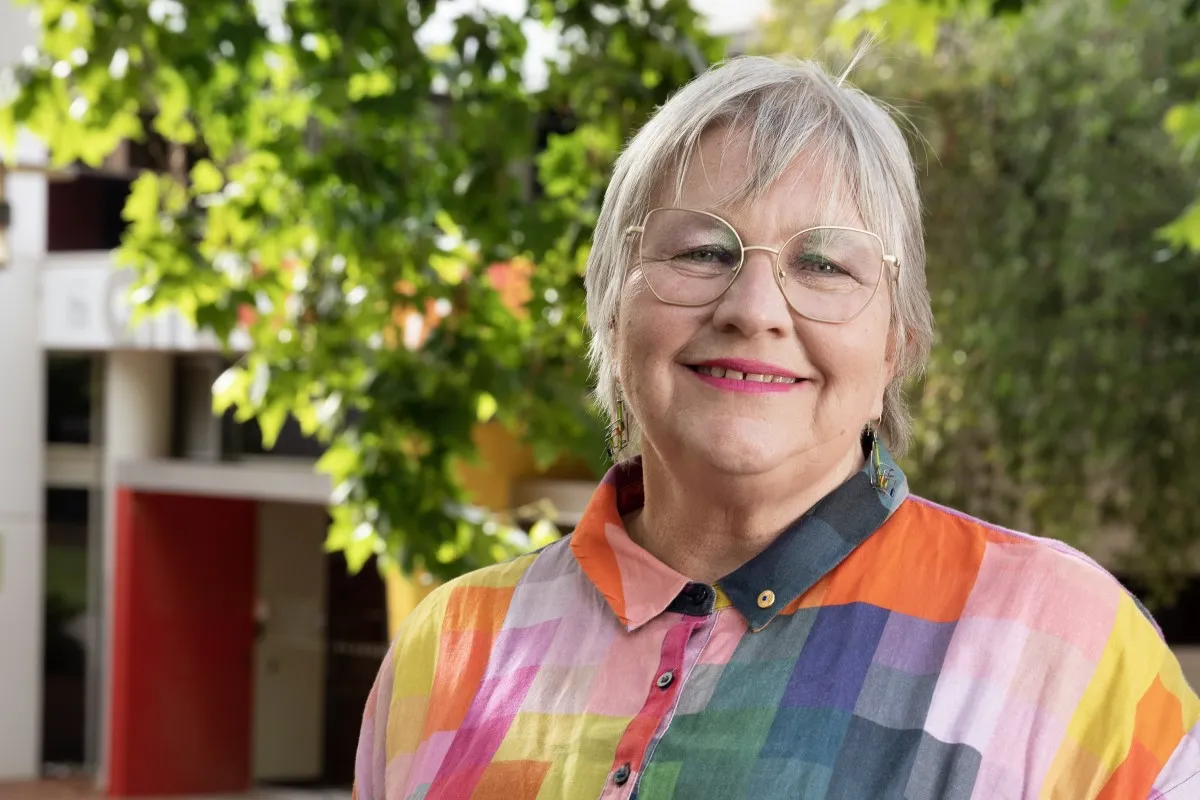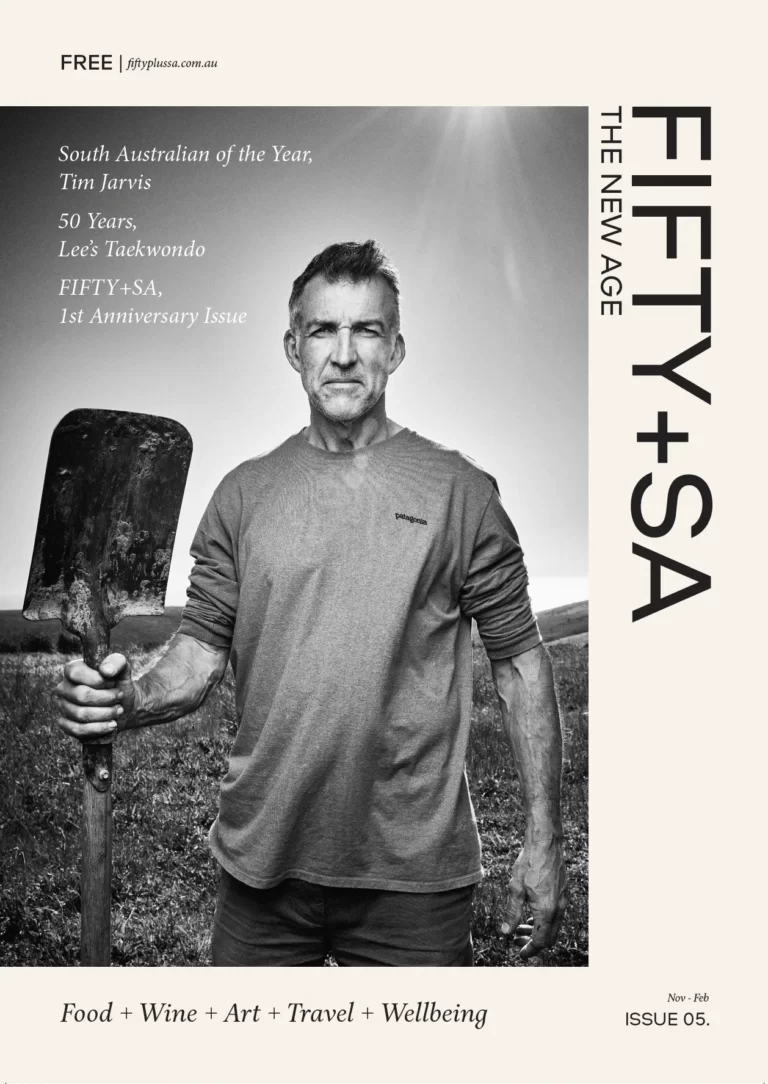Moira Were’s passion for social change is evident in her extensive involvement with women’s groups, her efforts in developing businesses, and her advocacy for children and young people to have a voice in decisions that affect their lives.
Deeply rooted in her love for her community, Moira has tirelessly pursued change on multiple fronts, from grassroots initiatives around the kitchen table to influencing policies and strategies at the cabinet table and the board table. Her collaborative spirit shines through as she joins forces with others to drive systemic shifts towards greater equity and justice, not only for the present generation but also for those yet to come.
Join us as we find out more about Moira’s journey and discover her vision for a fairer future.
Tell us a little bit about yourself and what you’re passionate about.
At my heart, I am a social worker. I am committed to change-making at scale. I have expressed this in various ways over my career; from the kitchen table, the cabinet table and the board table. I love collaborating and working together to shift systems to be equitable and just, for today and future generations. I love where I live and enjoy the coastline, the trees, trails and parks. I have been a lifelong volunteer, especially with women’s groups, developing businesses and supporting children and young people to have a voice in the decisions that impact on them.
Congratulations on being appointed as a Member of the Order of Australia in 2019. What has this recognition meant to you personally and professionally?
It is such an honour. I didn’t know who had put my name forward for a nomination, but eventually worked it out from the groups and individuals I support and enhance through my advocacy.
In the beginning I was really embarrassed and didn’t know how to accept the recognition, but I now wear my badge with pride every day as a way of saying to myself—as much as to the public—that my voluntary contributions have been recognised and are valued by my fellow Australians.
You have been recognised for your outstanding contributions to the community. Can you share some key highlights of your philanthropic work and community involvement?
My first foray into the world of volunteering and philanthropic support was as a 15-year-old at the Tea Tree Gully Institute Hall with local bands from the northern suburbs. Some of those are now household names like John Swann, Cold Chisel and an early version of the Little River Band. Those lessons of organising, raising funds, working with local police to deal with the bikies that would turn up, creating budgets and setting prices for drinks, and working with community leaders has stood me in good stead.
I am also delighted to have been a part of national events, as a volunteer leading facilitators, with a representative sample of hundreds of Australians at Old Parliament House. Topics included the Republic, Aboriginal and non-Aboriginal peoples and Muslims and non-Muslims in Australia. The lessons and experiences and partnerships built during the late 90s have served me well.
More recently, my contribution to closing the gender investment gap and supporting the emerging social enterprise sector have been twin pillars in my central commitment to equity. I founded Chooks SA as an online community six years ago and, literally, thousands of women have found jobs, investment, partners, connected ideas, built their own businesses and networks, and tested ideas. In parallel, I am the co-founder of Collab4Good, which is a social enterprise intermediary. With my co-founders, Amy range and Sarah Gun, we have shaped the foundations for successful social enterprise in this state. The federal government has recently invested in our approach to support 30 women transitioning from prison. This is going to be an incredible opportunity to bring to light systems barriers for these women and their tenacity to reach their potential.

The Australian honours system recognises individuals who have made a substantial difference. What message or legacy would you like to convey to the next generation of leaders and activists?
Keep turning up. Take a break when you need to—rest is also resistance. Keep learning. Invite others along for the journey and pass on your knowledge as you go. Listen to those who have gone before you. Laugh and dance. Have a playlist. Make hard things fun.
You’ve had a diverse career spanning various sectors. Can you share some experiences or lessons that have had a profound influence on your journey?
1. Enrolling at uni for a full-time load for a graduate entry degree three weeks before my first baby was due. The university staffer said it was a full load and I wouldn’t be able to do it. I was shocked. I said, fail me. I passed.
2. Taking time to read poetry because I find the efficiency and precision of poetry really helpful with metaphors, and for shaking me out of my familiar language. I saw Maya Angelou on Sesame Street and then started to read her work. Her poem ‘Still I Rise’ continues to be a go-to when I need a booster shot.
3. Going for a walk on The Burren in the west of Ireland was transformational. For the first time I felt I knew what being on country really meant.
4. Spending time on Adnyamathanha country in the northern Flinders Ranges shifted my understanding and deepened my knowledge.
5. Nothing like becoming a grandmother to kick me into shape to work more on environmental matters and keep my focus on the future.
Throughout your career, you’ve championed the cause of gender equality and diversity, as well as shaping ways of shifting power and opportunities for others. How do you see the progress in these areas, and what more do you believe can be done to advance them?
We are moving forward. The next steps are about consolidating what is in place and using levers to help, such as procurement policies supporting minimum levels of female-founded businesses, which have been successful with the federal government initiative, Supply Nation.
New models of decision-making such as participatory budgeting where everyone applying for the funds work out how the funds are being spent and allocate accordingly. Business models such as co-ops, mutuals growing as well as employee-owned business opportunities need useful levers, including setting up ways of measuring impact and, from the outset, getting accredited as B Corps and social enterprises through Social Traders.
I belong to an international community, Coralus, and we support business initiatives working on the world’s to-do list, otherwise known as the Sustainable Development Goals. We learn from each other, are coached and supported through transitions and find community in one another. During COVID this community was definitely a part of mental health. More communities like this will help advance because we are not fixing systems that don’t work, we are making new ones.
Talk to us about Chooks, the online space you founded to invest in women entrepreneurs in South Australia.
I was sitting at home caring for my dying husband and had two conversations with young women about being excluded and not being taken seriously in their business ventures. I had the time, so I started researching what was getting in the way for these two women. I discovered the gender investment gap was enormous and clearly structural. Less than 4 percent of capital funding goes to female founders. I started Chooks because I am not a chick and I am offended by the diminishing term around smallness, immaturity and childlikeness of this metaphor—and I like to have a bit of fun.
Chooks is for anyone who wants to contribute to closing the gender investment gap. Male membership of the group is around 5 percent. I would be happy with 50 percent.
There is an inherent bias in design and the way money flows. We can do better for women and for our economy. Revolving funds like we have in Coralus is one way, using crowdfunding is another, and debt crowdfunding like LendForGood is another.
Chooks emphasises the importance of connecting women across generations. How does this intergenerational approach benefit the community?
We all learn from each other—age and experience mentoring go both ways. Having an open mind, being willing to ask questions, curiosity exploring new technologies, ideas and wondering what works well and why from the past never goes astray.
Chooks applies a “gender lens” to its mission. Could you elaborate on what this means to you and how it influences the organisation’s approach to supporting innovators and entrepreneurs?
Applying a gender lens means asking questions like: what is the data telling us about how different genders are impacted by these issues? Are their intersectional issues impacting this matter? Who is better off and why? Is there a bias towards one group over another? Uncovering the answers to these types of questions opens new possibilities, can flip the system and create genuine new thinking, systems change, innovation, services and products. I am interested in equity, not just equality, and that means getting barriers out of the way to bring better outcomes for everyone. We can often see this clearly in the disability field where a ramp is great not just for the person in a wheelchair, but also for the parent with a child in a pusher, the sportsperson with an injury on crutches, the holiday skier who returns with a moon boot. Everyone can use a ramp. It is not privileging people with disabilities, it is making the building accessible to all.
You’ve been based in Onkaparinga since the 1990s—tell us about your connection to the region.
My husband and I moved to Onkaparinga because we were looking for an affordable large house for the six of us. We moved around the corner from a school, and just a short walk to the beach, so it was perfect. His mum and dad came down too and lived close to support us with the children, and I think the walkability between our homes and school was a great mutual support as we all grew older. Once the children were gone, we moved to Willunga and by then only my father-in-law was around and we built a granny flat for him on the back of our property. I moved from Willunga a year after my husband died to Sellicks, again for family proximity, but now I’m the grandparent! So, I have lived across the southern part of Onkaparinga and am now on the most southern extremity.

What inspired you to pursue the role of Mayor for the City of Onkaparinga, and what do you find most fulfilling about your position?
I felt the planets were aligning. I had decided to close my consulting business in June 2022 with a view to making space to see what would emerge. I was not thinking about local government. Making the space, several friends suggested it and I dismissed it at first, but then thought I should take the invitation from the universe and treat it seriously. In my usual way, I did a bit of research, talked to people close to me, and had a good think about it, tested a few ideas with trusted friends. I could then see it might be a great way to bring all my skills, networks and experience together. I was also concerned about where our city was going. Reputational injuries, a big debt and growing environmental and cultural challenges had already arrived, and there were more on the horizon. I thought I would treat the campaign as a 90-day project and then see what happened. I am deeply honoured by the trust the community has shown in me by voting me in as mayor.
I am loving the role. I enjoy hearing from all parts of the community, especially children and young people. I read stories and sing songs regularly with preschoolers in our libraries and try to get to as many youth events as I can. Citizenship ceremonies are another favourite. Being able to welcome people who have chosen Australia and our city as their home is humbling. We are so lucky to have such a beautiful place and I am getting to know more and more about our landscape and the incredible continuous custodianship of this place by Kaurna for millennia.
Can you share some of the key initiatives or projects you’ve been involved in as Mayor?
I am supporting the creation of a community canopy, planting more trees on private properties so we can keep our city cooler, and increase biodiversity and habitat.
I am working on ways we can celebrate and support our young community leaders, through inviting them to participate in council events and encouraging them to step up and step forward when opportunities arise.
My focus is increasing community participation in the development of the community plan. I want to hear more voices, not just the loudest ones or the usual suspects. Please get involved and share your aspirations for where you live, so we can find the best pathways to enhance our environment, create jobs, reduce homelessness, build pride of place and in people, respect Kaurna and face the future optimistically together.
Moira’s Fleurieu Faves
EAT: The Little Rickshaw, The Salopian Inn, The Victory
DO: Willunga Farmers Market, Walk in Onkaparinga Gorge, Concert at Aldinga’s Cooee Arthouse
LISTEN: I’m going with three musicians—Nancy Bates, Loren Kate and Surahn Sidhu









